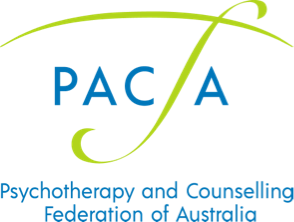How Grief and Loss Counselling can help
Unfortunately, every one of us will experience loss and grief at some point in our lives. The reaction to the death of a loved one is entirely individual and often our thoughts and feelings about our loss are extremely personal.
Grief and loss can often creep into our lives when we are totally unprepared causing a range of emotions to surface.
What causes grief and loss?
It is important to know that grief is not only caused by the loss of a loved one. You may be going through a difficult time where you or someone close to you has been diagnosed with an illness, loss of a limb, divorce or break up, loss of a job, ending a friendship or moving out of your comfort zone. For example, moving into retirement. Grief and loss can all be triggered by personal changes from who we were and now are. In some situations, grief can feel like a life-altering, identity changing, overwhelming experience that impacts the relationships around you. As mentioned above, grief is extremely personal and the list of causes are unique to each individual.
How long does grieving last?
Simply put, there is no set time frame for grieving. Coping with a significant loss is a process that varies from person to person.
However, during a difficult period, it is important to spend time looking after ourselves and give ourselves plenty of self-care. It can also be good to accept help when it is offered and share how you feel with someone you trust.
As we grieve, our emotional well being can be significantly impacted. Grief can affect our emotional and mental health in the same way an illness can affect our physical health.
There may be feelings of intense sadness, yearning and pain, sometimes even guilt and anger, but it is important to know that these are a completely normal part of the grieving process.
What are the stages of grieving?
While there is no right or wrong way to grieve, there are stages a grieving person often encounters. The grieving stages include feelings of:
- denial
- fear
- loneliness
- grief
- anger
- acceptance
- letting go
Some people move through the different grieving stages almost effortlessly, whereas others can sometimes get stuck at one stage.
During the process of grieving, we begin to create new experiences and habits to process our loss. While everyone finds their own way to grieve, it is important to have the support of friends, family or someone else and talk to when necessary.
How to cope with grief
How we cope with grief differs from person to person. Our individual coping strategies are developed from a lifetime of coping with different types of stress, loss, sadness and pain. However, children often find it more difficult to process loss in the same way as adults as they have less experience of building resilience.
Over years of life experience, as adults, we develop individual coping methods that can sometimes help us find the best way to process loss. So it is important to avoid trying to adapt to other people’s expectations of how to cope, how long to cope for and how other people grieve.
When to seek help for Grief and loss
Grief is an experience that can cause you to want to withdraw and isolate. However, having the support of other people is important to healing from a loss. While for some of us, talking about our grief may be difficult, it is important to express our feelings.
Even if talking about feelings in a normal situation is hard, if you are questioning when to ask for help, you may be seeking support. It is important not to isolate yourself as grief has the ability to make us feel lonely.
If you feel the need for help, always ask your trusted family or friends, your GP, Counsellor or an official online or telephone help service. Whether you need someone just to listen or offer practical advice, you never have to be alone through grief and loss.
Does grief counselling help?
If your grief feels like too much to bear or you are looking to talk to someone outside of your situation, finding a mental health professional with experience in grief counselling can help. It is vital any person experiencing a significant loss is supported. Loss and grief can come with intense emotions and obstacles, so an experienced therapist can help you address and work through the grief.
If you are looking for support through this difficult time please call or email Counselling on the Coast to see if I am the correct counsellor to help, listen and support you through any loss or grief you are experiencing.






